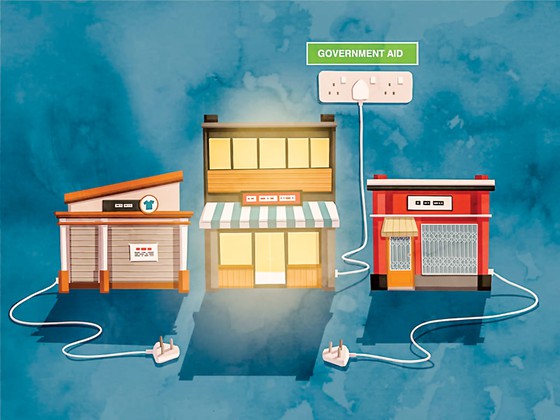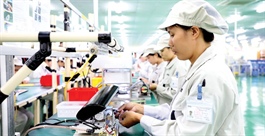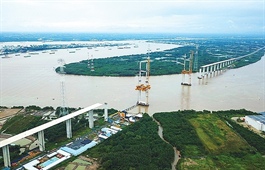Fear of creating new generation of zombie companies
Fear of creating new generation of zombie companies
Zombie companies are businesses that effectively are in debt at all times, and even though they generate an income that allows them to cover overhead costs and pay the interest on their loans, they are unable to clear the debt itself or the principal amount. A zombie company therefore needs bailout in order to continue to operate or avoid bankruptcy.
Illustrative photo.
|
Based on the assumption that profit can be maintained so as to pay interest for at least three years, we can estimate that currently in the Covid-19 pandemic scenario almost 3,500 zombie companies exist in the USA and Europe, which also account for 20% of all listed companies. Such zombie companies are also a drain on many Asian economies, with India leading with 617 zombie companies, China with 431, South Korea with 371, Taiwan with 327, and Japan with 109.
In Vietnam the glaring zombie companies would fall under the bracket of state-owned enterprises (SOE). Many SOEs are associated with huge projects, which have now turned into zombie enterprises. On one data report sent by the Government to the National Assembly on investment, management and use of capital in SOEs, zombie companies are very much a reality.
Reports show that 12 groups and corporations have accumulated losses that could exceed VND 7,440 bn, and six parent companies showed an accumulated loss of VND 2,819 bn. Groups and corporations currently having total liabilities of around VND 1,440.000 bn account for 53% of total capital in corporations. Many enterprises in state economic groups and parent companies with accumulated loss that lasts for many years, combined with high debt, show that they are no different from any zombie companies, which means they are in a permanent state of debt.
The current ongoing and unpredictable Covid-19 pandemic has caused governments to implement emergency assistance programs to save businesses and protect the labor market so that the economy does not fall into a recession. The flip side of such a policy is that in the process a new generation of zombie companies are created. Vietnam is also now offering several support packages, although many businesses are unable to access these support packages. However, in the present day situation of a raging pandemic, concerns are being raised about zombie companies, and terms such as ‘zombie careers’ and ‘zombie startups’ have begun to emerge. This concern must be real when designing any future assistance packages.
Support packages are being conducted in three phases to cover social distancing, gradual reopening and recovery post-pandemic. In the first two phases, the support package is fast and urgent, so it is not easy to distinguish what exactly is a zombie. However, the problem will arise in the post-pandemic phase, and must be carefully considered to avoid the risk of creating a new generation of zombie businesses. In order to do this, we only need to rely on two basic indicators which are cash flow and debt ratio, to identify zombies.
However, the damage cost caused by delay is sometimes even greater than the cost of recovery. In fact, not all zombie businesses are equal in terms of ability to pay back. In the present conditions in Vietnam, with several inadequacies in institutions and the recent growth of the private sector, especially small and medium enterprises, we need to distinguish very clearly the good from the bad.
Good zombies and temporary zombies are businesses with potential to recover if they receive timely support, especially institutional support followed by balanced administrative procedures. Many of these SOEs, if restructured properly and promptly, can still recover and rebound back strongly. If left too late on support, set under too complicated criteria, temporary zombies will turn into bad zombies, or even good potential businesses will turn into zombies. More worrisome is the wave of startups, which can turn into zombies if not supported in time.
In order to avoid this risk in the immediate future, the criteria for receiving support should be mild, with simplified administrative procedures, under supervision of support workers. However, solutions to support employees also has a downside, as they tend to stick to one enterprise as a matter of habit. This is called reverse incentive, a general intangibility that creates office zombies.
Reverse incentive will be a hindrance in the economic recovery process in the future. Therefore, the second economic support package should only last for a short time, and enough for businesses to have the opportunity to lift themselves and maintain their workforce. Hence, it is crucial to maintain openness, more transparency and certainly more accountability. It is also important that support packages only target enterprises with innovative potential and those enterprises that are vital to national security.
























